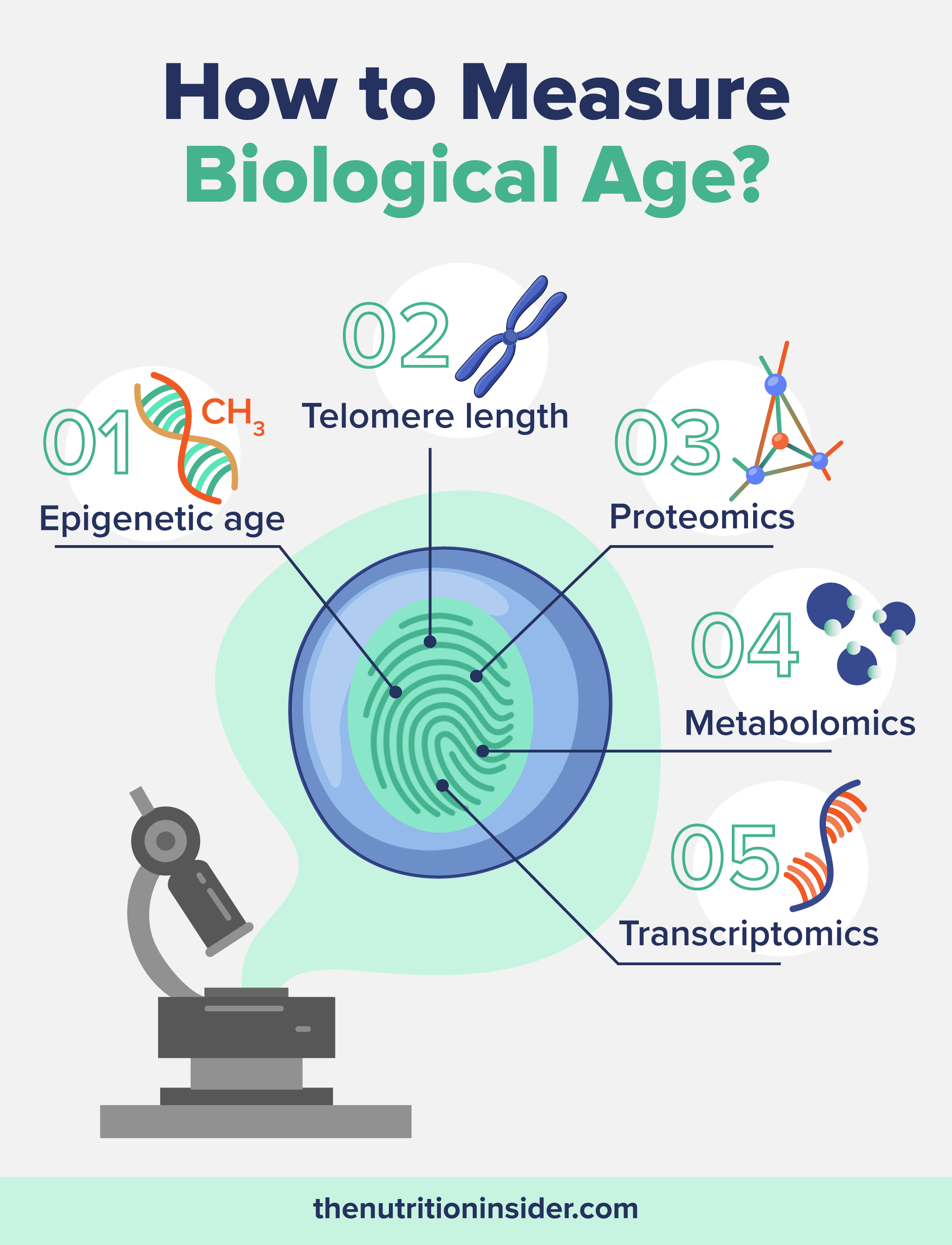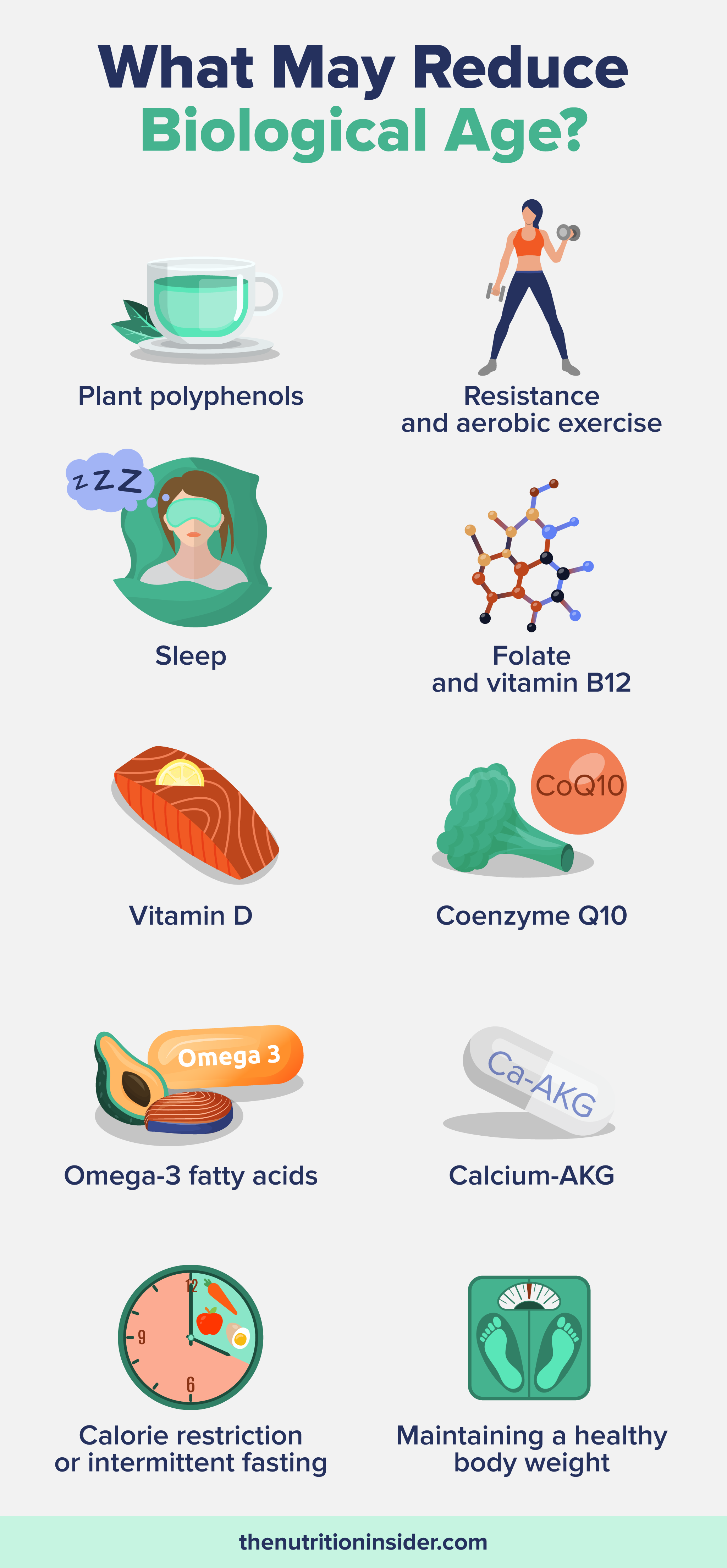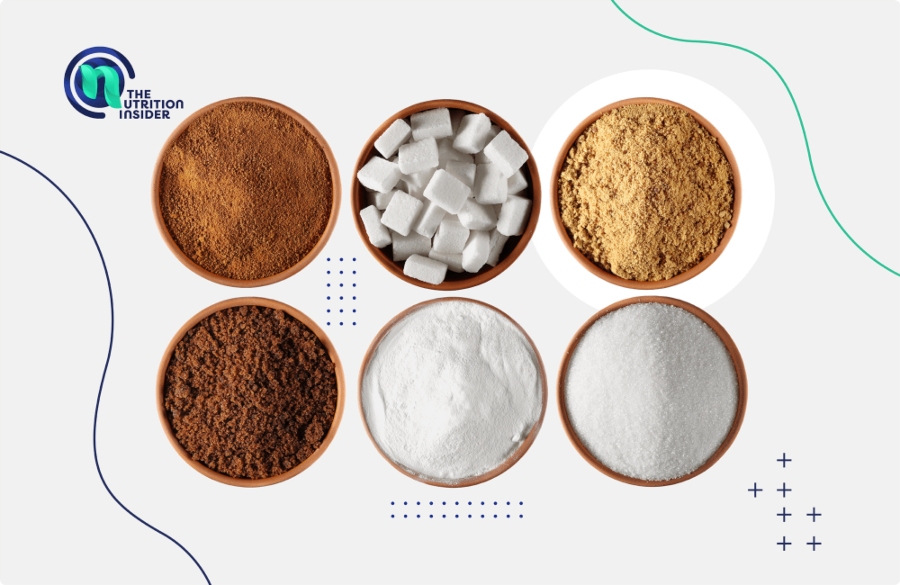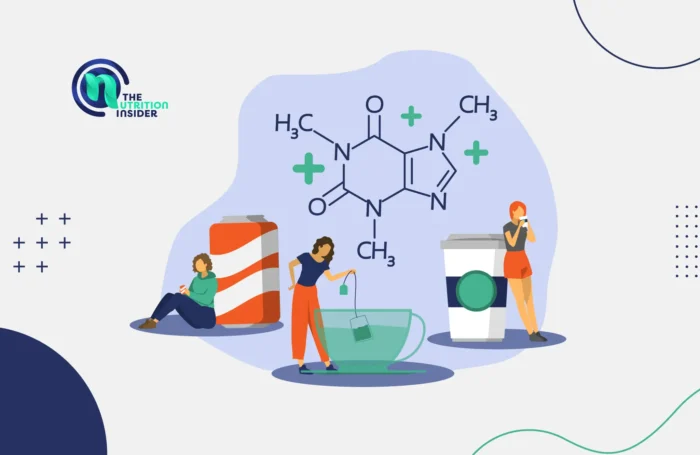Is It Possible to Reverse Aging?
Evidence Based Research To fulfill our commitment to bringing our audience accurate and insightful content, our expert writers and medical reviewers rely on carefully curated research.
Read Our Editorial Policy
The thought of reversing aging seems like something out of a sci-fi movie, but longevity researchers have been studying ways to reverse aging for decades. While we’re not talking about turning back time or aging backward, a la Benjamin Button, research has uncovered ways to reverse biological aging.
Although chronological aging is a natural and unavoidable process seen across all species, it is possible to slow or reverse biological aging—the rate at which your cells and organs are aging.
Let’s take a closer look at what biological aging is and some of the research that’s been done on the ways to reverse or slow down the aging process naturally.
Biological Aging 101
Chronological age is the one that everyone knows—the number of years you’ve spent on earth. Conversely, biological age is more like internal age, an assessment of damage and dysfunction to cellular markers.
Your biological age can become greater than your chronological age if you have led an unhealthy life—leading to age-related diseases—, or your cells might seem younger than you actually are if you’ve made healthy choices.
There are many ways to measure biological aging, with the most common being a “biological clock” or “epigenetic clock.”
Also known as epigenetic age, epigenetic clocks measure chemical changes to DNA, like DNA methylation—the addition of a methyl group to DNA.1 This doesn’t change the DNA sequence itself but, instead, leads to alterations in gene activity.
Chemical tags like methylation can arise from what we eat, our lifestyles, and environmental conditions like pollution, ultimately affecting how our cells read genes. With DNA methylation, some genes get turned on that should stay off, and vice versa.
As aging significantly increases the amount of methylated DNA, an epigenetic clock that keeps track of DNA methylation is often considered a good representation of biological age.
Other biological age tests may include or combine several other key biomarkers related to longevity, including:
- Telomere length: Telomeres are the protective endcaps on our chromosomes that shorten with each cell division. Therefore, biologically older cells will have shorter telomeres, which is considered a proxy for biological age.2
- Proteomics: Changes to our proteome, or set of proteins, can occur with age as the proper synthesis, folding, and regulation of proteins deteriorates.3
- Metabolomics: Our metabolome is the set of metabolites, or groups of small molecules that are created during metabolic processes. With age, metabolomic changes like reductions in the coenzyme NAD+ and increased inflammatory metabolites can occur.4
- Transcriptomics: Changes to the transcriptome (our set of messenger RNA molecules that create proteins from genetic material) are linked to biological aging.5

With an accelerated biological clock, you’re more likely to experience an earlier onset or increased risk of age-related diseases like dementia, heart disease, high blood pressure, poor bone health, or vision loss.
Conversely, maintaining healthy habits throughout life can keep you biologically young, supporting cognitive function, immune system health, heart health, and more, regardless of chronological age.
How to Reverse or Slow Aging Naturally
Methods to slow down or reverse aging will all target various aspects of our biological clocks or hallmarks of aging, including dietary choices, supplements, and environmental and lifestyle factors. While scientists have also been studying gene therapy, growth hormone therapy, or pharmaceuticals for anti-aging, we’ll just talk about nutrition and lifestyle here.
One landmark study on epigenetic aging and diet was published in 2021. In this randomized controlled clinical trial, 43 healthy males aged 50 to 72 were put on an 8-week healthy diet and lifestyle program that included sleep, exercise and relaxation guidance, and supplemental probiotics and phytonutrients.6
The program led to an average reduction in biological age of 1.96 years over the 8 weeks, in addition to the intervention participants being 3.24 years younger than the control group.
Specifically, the diet was moderately low in carbohydrates and high in dark leafy greens, cruciferous vegetables, beets, pumpkin seeds, sunflower seeds, berries, rosemary, turmeric, garlic, tea, and low-sugar fruit.
The diet was plant-forward but included nutrient-dense animal protein of 5-10 eggs per week, 6oz of grass-fed or pasture-raised animal protein daily, and three 3oz servings of liver per week (or an encapsulated liver supplement).
New research from 2023 looked at the same anti-aging protocol in women.7 Although this study was very small (just six women), the results were similar to those of the study with men—the diet and healthy lifestyle changes reduced biological age by 1.22 to 11.01 years in five out of six women. After 8 weeks, there was an average decrease in biological age by 4.6 years.
Some of the nutrients, compounds, and lifestyle or environmental factors that have been shown to reduce biological age and support a healthier aging process include:
- Plant polyphenols: Phytochemicals and antioxidants found in plants like turmeric, berries, onions, herbs, green tea, red grapes, and nuts can reduce oxidative stress, support mitochondrial function, and modulate DNA methylation, helping to elevate or reduce methylation where needed.8 Some of these compounds include curcumin (turmeric), EGCG (green tea), rosmarinic acid (rosemary), quercetin (onions), sulforaphane (cruciferous vegetables), and anthocyanins (berries).
- The Mediterranean diet: Aging research suggests that better adherence to a Mediterranean-style diet is linked to a lower biological age and a reduced risk of age-related diseases (like cardiovascular disease and dementia).9
- Resistance and aerobic exercise: Moderate exercise is known to support telomere length, especially aerobic exercise.10 Resistance or strength training helps to maintain muscle mass with age, which is a significant factor for longevity. In a study of over 3,500 adults, people who exercised regularly and had higher step counts had slower epigenetic aging.11
- Sleep: Getting enough quality sleep is crucial for healthy aging—both internally and externally, as anyone who’s ever skimped on sleep can attest when they look in the mirror the next day. There is a mountain of evidence showing that we need healthy sleep to age well, as sleep impacts DNA repair, mitochondrial function, cellular senescence, telomere length, and epigenetic aging.12
- Folate and vitamin B12: These vitamins are crucial for regulating DNA methylation. Folate is needed for DNA synthesis and maintenance, and vitamin B12 is a cofactor for enzymes involved with DNA stability and protecting DNA from oxidative damage.13,14
- Vitamin D: People who are vitamin D sufficient have been shown to have longer telomeres and reduced biological age by 1.3 years compared to people who are deficient in vitamin D.15 A randomized controlled trial also found that vitamin D supplementation (4,000 IU/day) reduced epigenetic age by 1.85 years in overweight or obese people.16
- Coenzyme Q10: CoQ10 is a coenzyme made in the mitochondrial membrane, playing a crucial role in the electron transport chain that produces energy. Aging research has shown that CoQ10 has epigenetic effects and influences the expression of many genes.17
- Omega-3 fatty acids: Omega-3 fats, like those found in salmon or fish oil, are linked to longer telomeres and slower epigenetic aging.18,19
- Calcium-AKG: Alpha-ketoglutarate is a key component of the Kreb’s cycle, which we need to produce energy from food. A small study found that supplementing with AKG for 7 months reduced epigenetic age by a whopping 8 years.20
- Calorie restriction or intermittent fasting: Limiting total calories consumed per day in addition to when you eat (like limiting your eating window to 8-10 hours per day) may reduce biological age.21 Caloric restriction has been shown to reduce epigenetic age in animals for several decades (like in this mouse model).22
- Maintaining a healthy body weight: Having an obese BMI is associated with accelerated epigenetic age, while a lower body weight may help to slow aging and reduce all-cause mortality.23,24

Overall, reversing or slowing biological aging—which can translate to looking younger on the outside—is possible.
The main ways to slow the aging process and stay “young” (even in older age) include eating a diet rich in plant polyphenols, omega-3s, vitamin D, folate, and vitamin B12, as well as healthy lifestyle changes like sleep, exercise, and having a healthy body weight.
Reverse Aging FAQs
What speeds up aging the most?
Many lifestyle factors speed up aging, including eating an unhealthy diet (low in plant polyphenols, micronutrients, and omega-3 fats and high in sugar and refined carbohydrates), not exercising regularly, not sleeping well, drinking too much alcohol, smoking, having an unhealthy body weight, and being exposed to pollution or environmental toxins often.
At what age does your face change most?
Your face likely changes the most in your 40s and 50s, although some people see changes in their 20s and 30s with unhealthy lifestyles. Not wearing sunscreen or exposing your face to excessive sunlight can age your face more rapidly. Additionally, accelerated internal or biological aging can show up as aging on your face, like wrinkles, sagging skin, or thinning skin.
Do you age slower if you sleep more?
Getting healthy amounts of high-quality sleep can definitely help you to age slower and remain healthier upon reaching old age. However, more is not always better—the sweet spot seems to be 7 to 9 hours per night, which can vary individually. Excessively sleeping (9 or more hours most nights) is linked to worse health outcomes.25
- Saul, D., & Kosinsky, R. L. (2021). Epigenetics of Aging and Aging-Associated Diseases. International journal of molecular sciences, 22(1), 401. https://doi.org/10.3390/ijms22010401
- Turner, K. J., Vasu, V., & Griffin, D. K. (2019). Telomere Biology and Human Phenotype. Cells, 8(1), 73. https://doi.org/10.3390/cells8010073
- Moaddel, R., Ubaida-Mohien, C., Tanaka, T., Lyashkov, A., Basisty, N., Schilling, B., Semba, R. D., Franceschi, C., Gorospe, M., & Ferrucci, L. (2021). Proteomics in aging research: A roadmap to clinical, translational research. Aging cell, 20(4), e13325. https://doi.org/10.1111/acel.13325
- Panyard, D. J., Yu, B., & Snyder, M. P. (2022). The metabolomics of human aging: Advances, challenges, and opportunities. Science advances, 8(42), eadd6155. https://doi.org/10.1126/sciadv.add6155
- Stoeger, T., Grant, R.A., McQuattie-Pimentel, A.C. et al. Aging is associated with a systemic length-associated transcriptome imbalance. Nat Aging 2, 1191–1206 (2022). https://doi.org/10.1038/s43587-022-00317-6
- Fitzgerald, K. N., Hodges, R., Hanes, D., Stack, E., Cheishvili, D., Szyf, M., Henkel, J., Twedt, M. W., Giannopoulou, D., Herdell, J., Logan, S., & Bradley, R. (2021). Potential reversal of epigenetic age using a diet and lifestyle intervention: a pilot randomized clinical trial. Aging, 13(7), 9419–9432. https://doi.org/10.18632/aging.202913
- Fitzgerald, K. N., Campbell, T., Makarem, S., & Hodges, R. (2023). Potential reversal of biological age in women following an 8-week methylation-supportive diet and lifestyle program: a case series. Aging, 15(6), 1833–1839. https://doi.org/10.18632/aging.204602
- Rajendran, P., Abdelsalam, S. A., Renu, K., Veeraraghavan, V., Ben Ammar, R., & Ahmed, E. A. (2022). Polyphenols as Potent Epigenetics Agents for Cancer. International journal of molecular sciences, 23(19), 11712. https://doi.org/10.3390/ijms231911712
- Esposito, S., Gialluisi, A., Costanzo, S., Di Castelnuovo, A., Ruggiero, E., De Curtis, A., Persichillo, M., Cerletti, C., Donati, M. B., de Gaetano, G., Iacoviello, L., Bonaccio, M., & Moli-sani Study Investigators (2022). Mediterranean diet and other dietary patterns in association with biological aging in the Moli-sani Study cohort. Clinical nutrition (Edinburgh, Scotland), 41(5), 1025–1033. https://doi.org/10.1016/j.clnu.2022.02.023
- Song, S., Lee, E., & Kim, H. (2022). Does Exercise Affect Telomere Length? A Systematic Review and Meta-Analysis of Randomized Controlled Trials. Medicina (Kaunas, Lithuania), 58(2), 242. https://doi.org/10.3390/medicina58020242
- Fox, F. A. U., Liu, D., Breteler, M. M. B., & Aziz, N. A. (2023). Physical activity is associated with slower epigenetic ageing-Findings from the Rhineland study. Aging cell, 22(6), e13828. https://doi.org/10.1111/acel.13828
- Carroll, J. E., & Prather, A. A. (2021). Sleep and Biological Aging: A Short Review. Current opinion in clinical endocrinology and metabolic research, 18, 159–164. https://doi.org/10.1016/j.coemr.2021.03.021
- Crider, K. S., Yang, T. P., Berry, R. J., & Bailey, L. B. (2012). Folate and DNA methylation: a review of molecular mechanisms and the evidence for folate’s role. Advances in nutrition (Bethesda, Md.), 3(1), 21–38. https://doi.org/10.3945/an.111.000992
- Halczuk, K., Kaźmierczak-Barańska, J., Karwowski, B. T., Karmańska, A., & Cieślak, M. (2023). Vitamin B12-Multifaceted In Vivo Functions and In Vitro Applications. Nutrients, 15(12), 2734. https://doi.org/10.3390/nu15122734
- Valentin Max Vetter, Dominik Spira, Verena Laura Banszerus, Ilja Demuth, Epigenetic Clock and Leukocyte Telomere Length Are Associated with Vitamin D Status but not with Functional Assessments and Frailty in the Berlin Aging Study II, The Journals of Gerontology: Series A, Volume 75, Issue 11, November 2020, Pages 2056–2063, https://doi.org/10.1093/gerona/glaa101
- Chen, L., Dong, Y., Bhagatwala, J., Raed, A., Huang, Y., & Zhu, H. (2019). Effects of Vitamin D3 Supplementation on Epigenetic Aging in Overweight and Obese African Americans With Suboptimal Vitamin D Status: A Randomized Clinical Trial. The journals of gerontology. Series A, Biological sciences and medical sciences, 74(1), 91–98. https://doi.org/10.1093/gerona/gly223
- Barcelos, I. P., & Haas, R. H. (2019). CoQ10 and Aging. Biology, 8(2), 28. https://doi.org/10.3390/biology8020028
- Ogłuszka, M., Lipiński, P., & Starzyński, R. R. (2022). Effect of Omega-3 Fatty Acids on Telomeres-Are They the Elixir of Youth?. Nutrients, 14(18), 3723. https://doi.org/10.3390/nu14183723
- Tremblay, B. L., Guénard, F., Rudkowska, I., Lemieux, S., Couture, P., & Vohl, M. C. (2017). Epigenetic changes in blood leukocytes following an omega-3 fatty acid supplementation. Clinical epigenetics, 9, 43. https://doi.org/10.1186/s13148-017-0345-3
- Demidenko, O., Barardo, D., Budovskii, V., Finnemore, R., Palmer, F. R., Kennedy, B. K., & Budovskaya, Y. V. (2021). Rejuvant®, a potential life-extending compound formulation with alpha-ketoglutarate and vitamins, conferred an average 8 year reduction in biological aging, after an average of 7 months of use, in the TruAge DNA methylation test. Aging, 13(22), 24485–24499. https://doi.org/10.18632/aging.203736
- Gensous, N., Franceschi, C., Santoro, A., Milazzo, M., Garagnani, P., & Bacalini, M. G. (2019). The Impact of Caloric Restriction on the Epigenetic Signatures of Aging. International journal of molecular sciences, 20(8), 2022. https://doi.org/10.3390/ijms20082022
- Miyamura, Y., Tawa, R., Koizumi, A., Uehara, Y., Kurishita, A., Sakurai, H., Kamiyama, S., & Ono, T. (1993). Effects of energy restriction on age-associated changes of DNA methylation in mouse liver. Mutation research, 295(2), 63–69. https://doi.org/10.1016/0921-8734(93)90002-k
- de Toro-Martín, J., Guénard, F., Tchernof, A. et al. Body mass index is associated with epigenetic age acceleration in the visceral adipose tissue of subjects with severe obesity. Clin Epigenet 11, 172 (2019). https://doi.org/10.1186/s13148-019-0754-6
- Flegal, K. M., Kit, B. K., Orpana, H., & Graubard, B. I. (2013). Association of all-cause mortality with overweight and obesity using standard body mass index categories: a systematic review and meta-analysis. JAMA, 309(1), 71–82. https://doi.org/10.1001/jama.2012.113905
- Léger, D., Beck, F., Richard, J. B., Sauvet, F., & Faraut, B. (2014). The risks of sleeping “too much”. Survey of a National Representative Sample of 24671 adults (INPES health barometer). PloS one, 9(9), e106950. https://doi.org/10.1371/journal.pone.0106950








